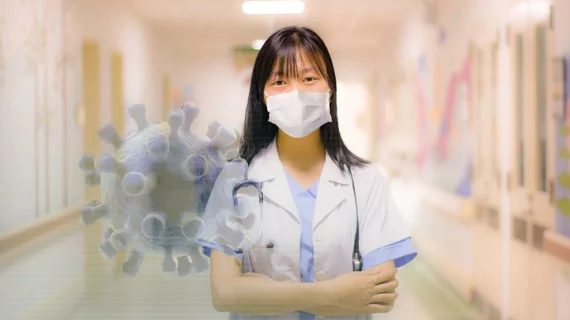2 hospitals unleash AI innovations against COVID-19
Tampa General Hospital in Florida has admitted three patients with COVID-19. Halfway around the world, Sheba Medical Center in Israel has seen 40. Both expect exponential increases—and both are using new AI applications to respond.
Specifically, Tampa General is installing an algorithmic system to instantaneously identify fever in visitors. It works with facial recognition software.
Meanwhile, Sheba is monitoring COVID-positive patients with an AI-powered sensor placed under their mattresses. Continuously analyzing patterns in these patients’ heart activity, respiration and body movements, the sensor alerts staff when someone seems headed for respiratory failure or sepsis.
The Wall Street Journal posted coverage of the installations March 20.
Tampa General’s system uses cameras positioned at visitor entrances to pick up on not only thermal data but also sweating and facial discoloration, the paper reports.
The objective is to screen visitors for fever and block those who are feverish, John Couris, president and CEO, tells reporter Jared Council.
Couris says the system is “part of an outbreak-response plan to reduce normal foot traffic at Tampa General by three-quarters,” Council writes. Couris emphasizes that the goal is to “keep people that don’t really need to be in the hospital out of the hospital.”
Both systems were developed locally to the provider institutions—Tampa General’s AI-powered visitor screening by Orlando-based Care.ai and Sheba’s under-mattress monitor by Israeli medical-devices company EarlySense.
WSJ reporter Council also quotes Gregg Pessin, an industry analyst from Gartner. Noting that both the technologies in the article are new, Pessin says the most effective AI applications are likely to be those installed before the pandemic.
“The [AI technologies] that have proven themselves with other infectious diseases,” Pessin says, “we can have higher expectations of them.”
Read the whole thing:

